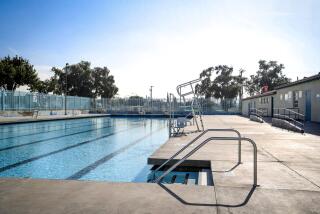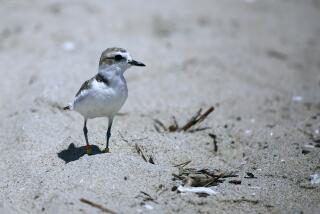TO THE RESCUE
- Share via
To the 100,000 or so people who will visit Newport Beach this weekend: Don’t panic.
That’s probably the most important piece of advice a lifeguard will give you here--or anywhere.
Each summer Newport Beach lifeguards perform 4,000 to 7,000 ocean rescues, and over Labor Day weekend, the last hurrah of the summer, they can do as many as 1,000.
In most of these cases, lifeguards are saving swimmers who have overestimated their strength and ignored the warning signs of rip currents.
“It’s a combination of being a weak swimmer and not having ocean knowledge,” Lifeguard Capt. Eric Bauer said. “They can’t ID a rip current. They don’t swim near a lifeguard and if they don’t know what to do, they get exhausted, panic and then drown. That’s the scenario.”
There are a few things you can do to reduce the chance that you’ll need to be rescued. First, listen to the lifeguards. On this 6.2-mile stretch of beach, they take about 125,000 preventive actions each summer by warning swimmers when danger’s afoot--especially where rip currents lurk.
Rip currents are basically a release of large pockets of water from the shore out to the ocean. The current picks up sand and makes the water noticeably brown. The water is also usually choppy and surf is less likely to roll into the beach.
If you find yourself caught in a rip current, Bauer says, the most critical thing to do is stay calm. Try to plant your feet on the ocean floor and walk to shore. Often swimmers struggle against currents when they’re in water only four or five feet deep.
If you’re too far out to walk, swim parallel to the shoreline until you reach clear blue water, then swim or walk into shore. Finally, if you find yourself getting tired, wave your arms and call for help.
After this weekend, the number of lifeguards on Newport beaches will drop from 90 to about 10 or 11.
“The seasonal lifeguards, the young men and women, have worked pretty hard and I’m sure they’re ready to get back to school and crack the books,” Bauer says. “It’s a physically demanding job and the sun takes its toll.”
But this is hard work with a built-in reward: saving lives.
More to Read
Sign up for Essential California
The most important California stories and recommendations in your inbox every morning.
You may occasionally receive promotional content from the Los Angeles Times.













